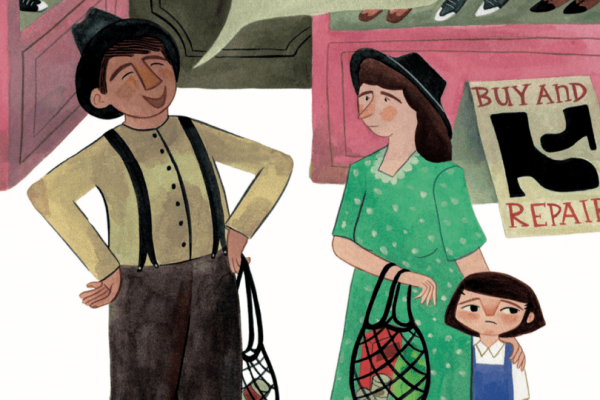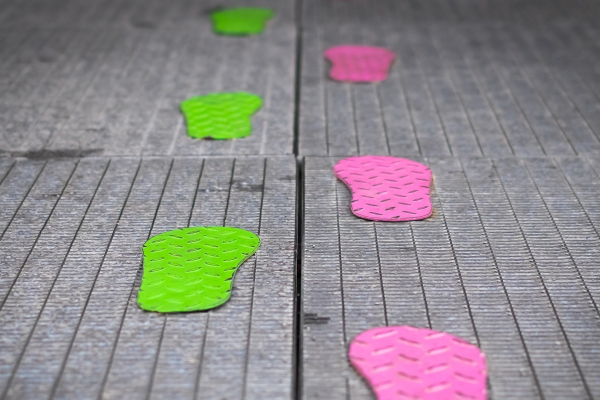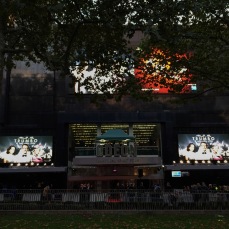
Not even quite all of the massive ensemble cast of High-Rise.
“I went in with no expectations, and came out with no clue.”
My fellow attendee’s bafflement was in some ways at complete odds with my own experience – I went in with fearful expectations came out inspired and relieved – but at the same time I could relate. High-Rise is a beautifully bewildering experience, as well any combination of Ballard and Wheatley might be.
Confession: I’ve never read any Ballard (I shall, I shall, hold the nagging). I’ve also never seen any of Wheatley’s previous films. I’ve read about them, lingeringly, fascinatedly – and then backed off wondering if I have the stomach for them. My colleague Suni, when he heard what I was going to see, gleefully told me about how far out of his comfort zone Kill List had taken him. Yet this one seemed like the one to take the plunge with. The lure of the star was there, of course, but more than that what I knew of the book seemed to suggest now was the perfect time for it to come to life on screen.

Ben Wheatley, Tom Hiddleston, Sienna Miller and Elisabeth Moss field questions after the screening.
Dr Robert Laing (Tom Hiddleston) moves into the 25th floor of a beguiling and beautiful new high-rise block, quickly discovering the hierarchy within via the bewitching Charlotte (Sienna Miller) – herself only on the 26th floor but still apparently a door to the architect, Royal (Jeremy Irons), safely cushioned in the rarefied air of the 40th. Along with his neighbour Wilder (Luke Evans) – a mass of neurotic, barely concealed rage complete with perma-pregnant wife (Elisabeth Moss) – Laing is swept up in the social climbing until the lights literally start to go out, and the social infrastructure disintegrates as rapidly and catastrophically as the physical.
Following the canny yet childishly naive everyman through the nightmare landscape where everyone else seems to hold the puzzle pieces without ever revealing the whole picture is always an unsettling experience; with the 1970s setting, the drugs, debauchery and dog-eating, it would be easy for High-Rise to just be an exhausting mass of colours, of noise. Wheatley, however, is far, far too skilled to fall into the trap of directing an extended music video. Far from being a technicolour descent into madness, it’s the shades of grey – metaphorical and literal – in High-Rise that make it so compelling.

More Q&A – Hiddleston possibly answering questions about preparing for the role with a pathologist visit.
Hiddleston provides the almost perfectly calm centre around which the madness swirls; his rare moments of violent animation are almost immediately countered – withdrawn by an apology or an outstretched hand. Jarring against this is a spectacularly eerie performance from Evans who paints a figure both shambolically laughable and terrifyingly unhinged. In between Miller dances on the edge of disaster, switching roles as easily as she changes outfits: doting mother, louche party girl, mysterious stranger.
In many ways, High-Rise could best be described as a full-length McGuffin. As much as it doesn’t shy away from the grotesque or graphic, you’re left with the lingering suspicion that almost everything of note has happened where you – and Laing – can’t see it. Notes are written and screwed up without the contents being revealed. People are carried away and reappear some time later changed – but exactly what’s happened in the interim is unclear. When it comes to some of the most vile acts, including a particularly violent rape, almost nothing is seen – but a central suicide is lingered over in almost unbearable detail. The film’s priorities are Laing’s selfish, confused, insecure priorities – ours, in other words. There’s absolutely nothing subtle about the messages here, but – odd as it is to say in a film that includes a dream sequence with dancing cabin crew and a bludgeoning fist fight over a can of paint – there are layers of nuance in the delivery, and there can be a delicacy and beauty in the brutality.
I thought that at best I might emerge from High-Rise not traumatised. Instead I was oddly energised. In the Q&A afterwards, all the cast agreed that if they moved into the building they’d all have been out and in a hotel after the first night. But I think they might be lying to themselves just a little bit. After all, as they looked out onto the avid faces of the audience eagerly hanging onto their every word, they must have known that to us mere mortals they do, to some extent, represent the 40th floor. And the top is always the last bit to come toppling down.
No disclosure: I attended in my own capacity as a BFI Member. And because I’m an enormous nerd, I wore a vintage 1960s gold lurex dress. See thoughts on Suffragette here; Trumbo here.
See the program and get tickets for further #LFF events here.












 You could be forgiven for assuming that Damien Chazelle has a particular focus on making films about music. In fact, what his blistering debut Whiplash and La La Land actually have more closely in common is that they’re both about commitment and conviction. Which is mildly ironic, as there’s not a lot of that in evidence in the latter.
You could be forgiven for assuming that Damien Chazelle has a particular focus on making films about music. In fact, what his blistering debut Whiplash and La La Land actually have more closely in common is that they’re both about commitment and conviction. Which is mildly ironic, as there’s not a lot of that in evidence in the latter.















